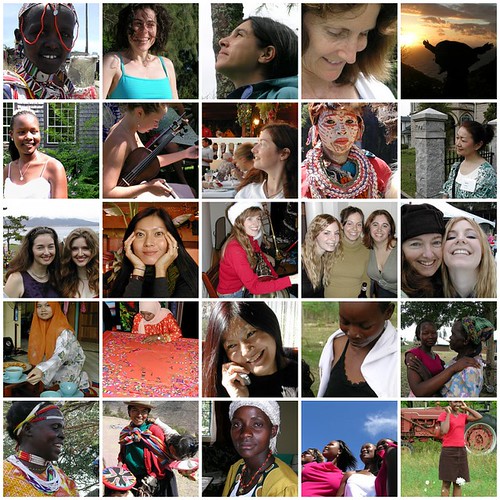UN’s conference on women: Shedding light
 Many thousands of women, organizations and NGOs descended on New York for the recent global checkup with the annual  ‘Commission on the Status of Women’, with the Beijing conference as sort of a benchmark. It was heavy on the agenda of spreading access to abortion under the mantle of ‘reproductive rights’, but there was a large pro-life contingent there to stake claims that authentic dignity for women comes from true universal human rights….for all human beings.
Many thousands of women, organizations and NGOs descended on New York for the recent global checkup with the annual  ‘Commission on the Status of Women’, with the Beijing conference as sort of a benchmark. It was heavy on the agenda of spreading access to abortion under the mantle of ‘reproductive rights’, but there was a large pro-life contingent there to stake claims that authentic dignity for women comes from true universal human rights….for all human beings.
C-Fam captures the atmosphere well in this report on the competing views of maternal health.
I also like the succinct statement on the Vatican Information Service by Archbishop Celestino Migliore, Holy See permanent observer to the United Nations, who addressed this convoluted sounding gathering:
the fifty-fourth session of the Economic and Social Council’s Commission on the Status of Women, which was meeting to discuss “Item 3: Follow-up to the Fourth World Conference on Women and to the twenty-third special session of the General Assembly entitled ‘Women 2000: gender equality, development and peace for the twenty-first century'”.
This is the kind of cumbersome official-speak we need to wade through to mine the gems of insight and wisdom contained within at least some of them. Archbishop Migliore had both. He said:
“From the successive interventions in these days, … it seems that the assessment is not entirely positive: It includes some light, but also many and disturbing shadows.
He went on to note some advancements in the status of women and improvement in their social conditions in the world at large, but he also noted women continue to suffer violence and abuse in many parts of the world. Don’t just necessarily think ‘underdeveloped’ world or places under repressive regimes in picturing that. Migliore zeroes in on the (sorry) inconvenient truth embedded in the modern feminist agenda through agencies like the UN.
Follow this closely:
“Achieving equality between women and men in education, employment, legal protection and social and political rights is considered in the context of gender equality. Yet the evidence shows that the handling of this concept … is proving increasingly ideologically driven, and actually delays the true advancement of women. Moreover, in recent official documents there are interpretations of gender that dissolve every specificity and complementarity between men and women. These theories will not change the nature of things but certainly are already blurring and hindering any serious and timely advancement on the recognition of the inherent dignity and rights of women”.
Spot on. Furthermore…
Archbishop Migliore stressed the fact that the final documents of international conferences and committees often “link the achievement of personal, social, economic and political rights to a notion of sexual and reproductive health and rights which is violent to unborn human life and is detrimental to the integral needs of women and men within society”.
Exactly. This is undeniably true, and needs to be said and heard and deliberated and embraced as a motivation for change.
“A solution respectful of the dignity of women does not allow us to bypass the right to motherhood, but commits us to promoting motherhood by investing in and improving local health systems and providing essential obstetrical services”, he said.
Reclaiming and protecting motherhood is an important goal for women’s progress and for the future of the world. No exaggeration.
“Fifteen years ago the Beijing Platform for Action proclaimed that women’s human rights are an inalienable, integral and indivisible part of universal human rights. This is key not only to understanding the inherent dignity of women and girls but also to making this a concrete reality around the world”, he concluded.
And, at least I believe, key to peace in it.
